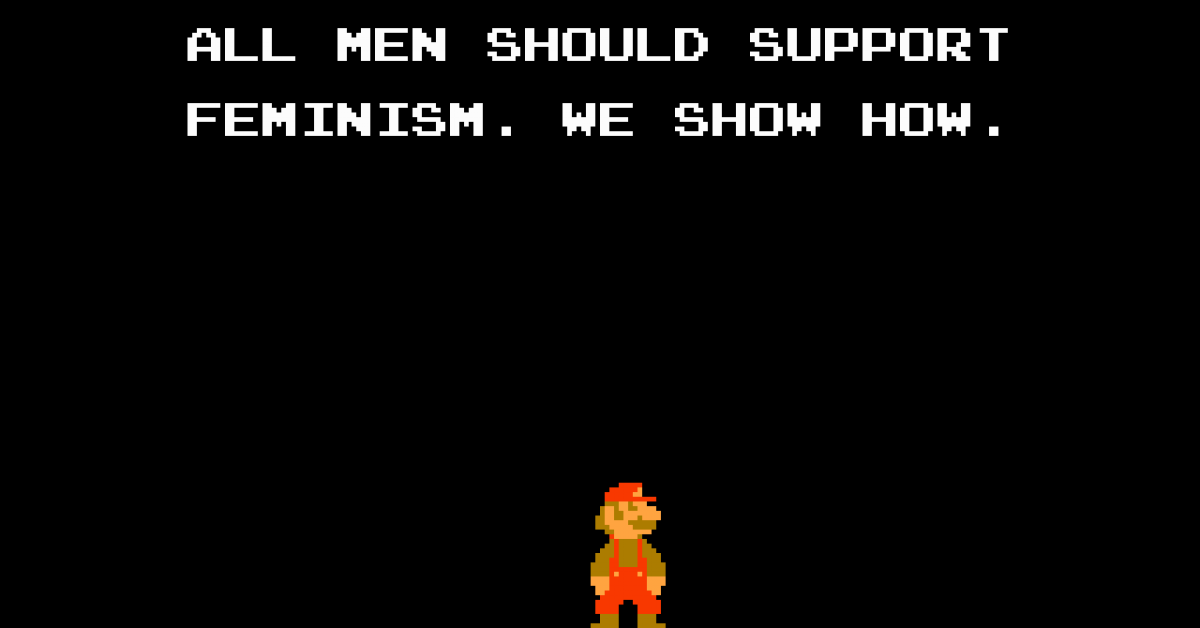Author: Henrik Marstal (writer and musician)
Some time ago, the international initiative #WomenAgainstFeminism flourished on various social media. Within a remarkably short period of time, thousands of women united because they felt repelled by feminism.
In Denmark, a 23-year-old female educationalist caused a stir in the national media by stating that because feminists hate men, they make her feel ashamed of her own sex. A Danish female blogger even opposed to any kind of feminist thought and compared feminism to religious fanaticism – and me, an outspoken feminist and a blogger myself, being her only example.
Thus, for many people, feminism is simply a word they do not bother to learn (more) about. Moreover, it is a word that apparently is connected with something negative and annoying because feminism is perceived as sincerely superfluous and irrelevant. But I am pretty sure that this resistance is primarily an expression of a universal truth: pressure causes counter-pressure. While a feminist approach as being a solution to many of the world’s problems has shown growing attention among people all over the Western world, the resistance to this approach has been on the rise, too.
This resistance comes not only from men, who regard the movement as a serious threat to inherited patriarchal privileges. It also comes from privileged women, who do not want to be reminded of the fact that they still find themselves in a highly unequal position compared to men concerning economic matters, power, justice etc.
Many people subscribe to the notion of feminism as being a totalitarian ideology with its primary purpose being to spread misandry (male hatred), to claim womanhood as a victim, to promote a matriarchal world order and to offend patriarchal matters, even in places where women feel quite satisfied with the state of affairs.
But if these people asked feminists what they want to focus on, most of them will come up with an answer that doesn’t quite fit all the resentment. I bet that most feminists would answer that they are working to fully realize equality matters between the sexes in terms of politics, social issues, sexuality, economy and notions of power. And while they answer, they will refer to statistics, reports, studies and empirical observations rather than to their own emotions.
The Swedish author and feminist Nina Björk has said it like this:
“Feminism is a political movement with its goal being to make gender an uninteresting category in everyones’ social lives.”
Ulla Tornemand, a chairwoman from Danish Women’s Society (founded in 1871) , puts it this way:
“Being a feminist means working to end oppression, discrimination and exploitation of people just because of their gender, ethnicity, social class, sexual orientation and/or other issues. The correspondence of the movement’s name with the female gender is historically conditioned. So today, to be a feminist is to believe in and work for equality.”
So, with a few radical exceptions, feminists are neither male-haters or religious fanatics. For the same reason, a rapidly growing number of men have declared themselves feminists. These men, I believe, know that true equality between the sexes will help putting an end to patriarchal norms which are of no benefit for them, either.
In the aforementioned #WomenAgainstFeminism movement, there were several women with a handwritten sign which rejected feminism, including a woman with a sign that said: “I do not need feminism because I enjoy being a stay-at-home housewife and do not feel less valuable for that reason.”
Unfortunately, this woman did not know what feminism is all about. Had she known, she would have been aware that feminists do not look down on housewives, and that the movement works for equal rights between the genders in connection with childbirths, divorces and parental rights.
One of my friends paraphrased the woman’s statement like this:
“I do not need feminism because I am totally indifferent to all the women who do not thrive in the traditional roles which men often expect us to join. I therefore give up everything that feminists before my time fought for so fiercely and sometimes paid a high price for: my voice and vote, my education right, my right to be respected for who I am, my right to not constantly be viewed as a sex object by all men (until I get about the age of 45-50 years), my right to abortion and my right not to be beaten, raped or murdered by my partner. These are all factors which, even in the 21st century, are still not taken for granted outside the Western World – and only to a certain extent within this area.”
The woman might also be devoid of empathy for other women; devoid of empathy for the 29,000 women who each year are subject to domestic violence in Denmark alone (10,000 of them are exposed to repeated, serious abuse). Moreover, she might be devoid of empathy for women who suffer from having less favourable terms in economic, social or legal matters.
Finally, she might be devoid of empathy with women for whom gender stereotyping in the media, in advertising, in fashion and in porn hampers their self-expression and drains their self-esteem. This applies not less to the many women who have repeatedly been experiencing serious problems with sexism, threats of rape as well as rape without being taken seriously by the authorities as well as their friends and families.
It seems that we could draw a parallel line between the women’s liberation movement and the labor movement: Both made enormous progress for a very large social group, and both will continue to be necessary. If not, the world as we know it runs the risk of being pulled back in time. To all of us, it is indeed true that equality never happened automatically – it has to be fought for every inch.
Not many people would have missed the trade union movement. I am sure that many people admit that something similar is true for the women’s liberation movement. So put down the reservations, all you people out there: Feminism is for all of us.

